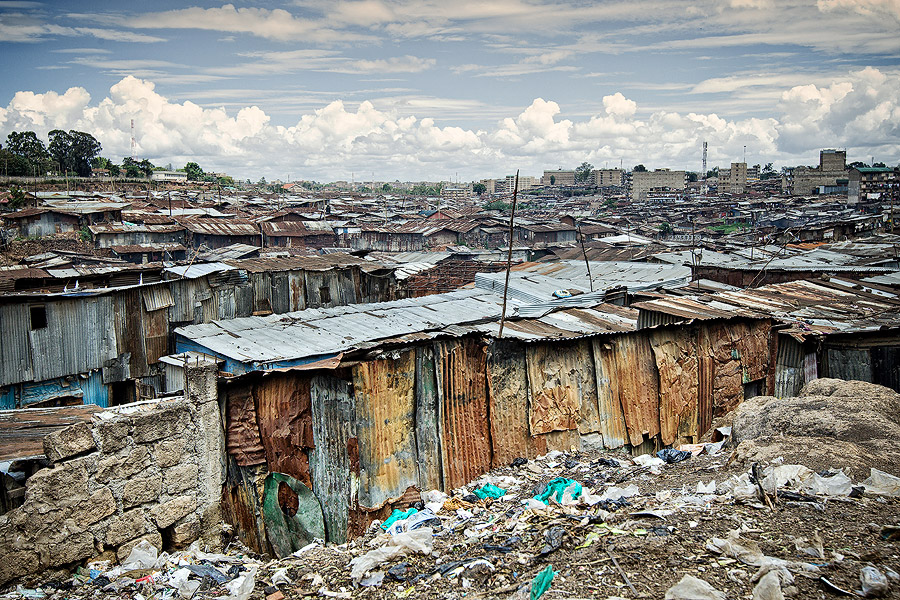Globally, the UN estimates that 1.6 billion people struggle to find adequate housing. Kenya’s Constitution Article 43(1) (b), provides that ‘every person has the right to accessible and adequate housing and reasonable standards of sanitation’. Kenyans suffer insecurity of tenure and are victims of frequent forceful evictions. This is a country that never follows up on building standards, leave alone rent controls. The current leadership is money-minded and has no interest in public housing. They drink wine while preaching water. Demolition of three social housings; Pangani, Jevanjee and Gorofani estates proves that they are good at lip-service.
In a free market economy, private developers build houses according to ‘demand and supply’ forces, which side-lines the impoverished. And when the government through Public-private partnership boast of availing “affordable housing” we are forced to ask, ‘affordable’ unto whom? It is our supercilious middle-class that get mortgages to buy these houses and the filthy-rich purchases more than needed units specifically as speculating investors, not for home-ownership. Big business with illicit money do control Kenya’s building sector. Terrorism money has indeed inflated Nairobi’s land price yonder Pretoria’s land value.
Aidah Munano, Housing Principal Secretary said that the government’s target for social and affordable housing is a million. These meant 200,000 housing units annual. But the stark reality, she admits, they could do 20,000 per year. But even that humble goal as so far has proven to be an uphill task unto the government. She says affordable housing will go for KShs 3 million. In a country of 30 billionaires and 45 million paupers, we wonder who will afford these houses. Sadly, the politically-correct are the very private-partners in these dealings with the public works.
But it’s not just about housing construction, the element of densification of the working class in gentrified neighbourhoods of the poor. Vertical climbing slums, in the name of high-rise flats, are taking shape in formerly vast horizontal semi-detached and or detached Eastlands colonial Kenya social housing. Displaced, the poor became a bigger problem to the wider society, evils associated with poverty increase threefold; crime, broken homes, substance abuse and even widespread diseases as is with the present-day SARS COV 2 – COVID 19. Kenya’s central government appetite for land has seen it taking over the leadership of Nairobi, and even suggesting to Kenyans, that the capital city being a seat of the UN's Environment and Habitat ought to be under ‘special’ national jurisdiction. And for this, if not due to CoViD 19, would have been pushed to fruition in the forth-coming ‘Building Bridges Initiative’ referendum.
Land-lord friendly loopholes have gone past the building and construction sector where benevolence is begged. During this CoViD 19 pandemic, the W.H.O. and World Bank funding to government economic stimulus never cushioned the housing sector. The big hotel sector, that the big-fish own and other ‘important’ sectors found funding. Neither the county governments nor private landlords minded their tenants or renters inability to comfortably pay their monthly rents. Only with rent-control laws, can we go back to the sanity that housing is a basic need and not a commercial commodity.
Winning housing reforms in Kenya will only start with land reforms. Such land reforms can only be achievable when Bretton Wood institution becomes truly pro-poor and countries such as Netherlands stop being a tax haven for mercenary corporates. The fight is painstakingly taking long battling from the base. The top – Developed Countries, should decide that ‘enough is enough’. Bilaterally treaties should address Double Taxation Agreements (DTA) and how to tax capital gains. Financial secrecy and repatriation of profits, profit-shifting and tax avoidance can only be addressed by raising the red flag by the very colonial masters who knew well the riches they were forced to leave behind by cries of independence.
In as much as we have bad company from abroad, rotten eggs do too exist amongst us. These collaborate in hiding their lot ‘off-shore’ and in Swiss bank accounts. The Court in Hague if not vague, then operates in selective justice. We wish to see its hidden talons frisk not only the perpetrators but also their accomplice wherever they are. Mineral-rich countries should be spared from over-exploitation of their natural resources. Such selfish extraction is a cause of problematic climate change.
If indeed our world is a global village, the Occident, the Orient and Africans, must come to their senses, noting we have enough for everyone in this world, but only if we partake from the same table. Equity, more than equality, will enable humanity to live in everlasting peace and prosperity. To achieve this, we can emulate the social housing model of Austria and that of Community Land Trust (CLT). Big banks’ bucks and pro-corporates multi-national establishments ought to capitulate, as they’re proving to be a broken private market.

